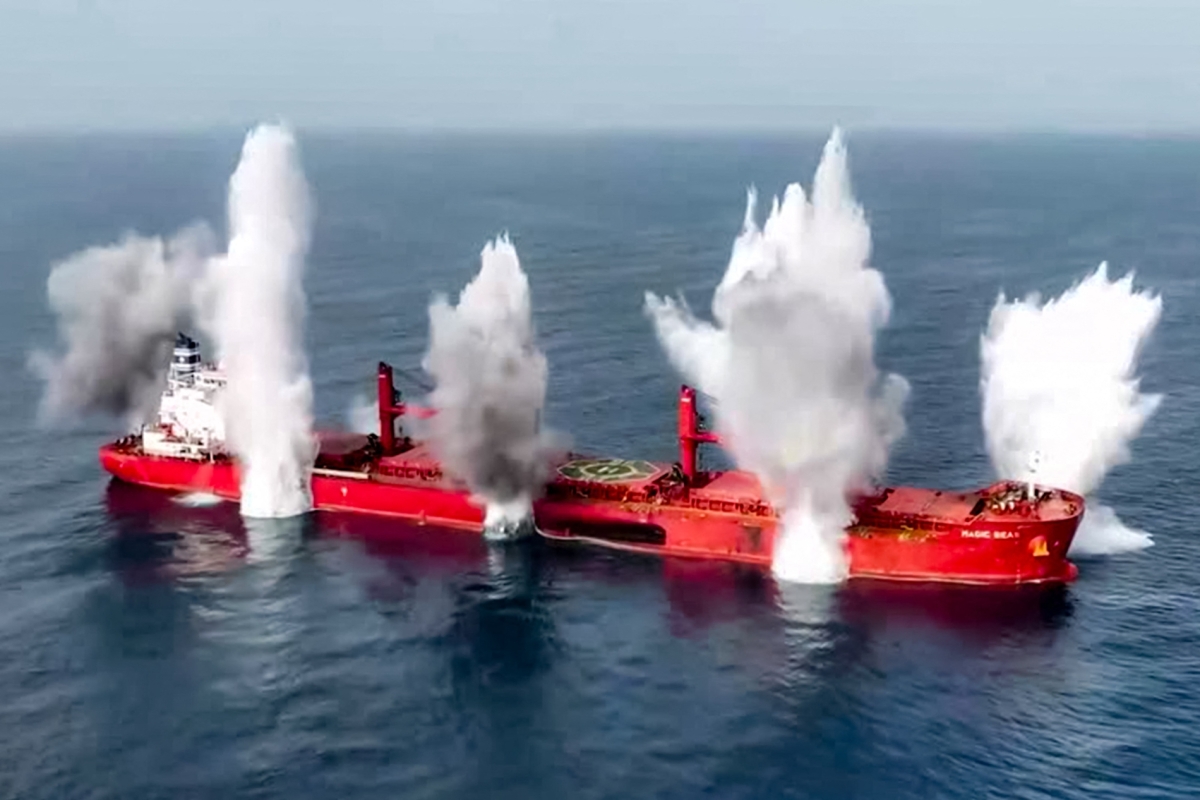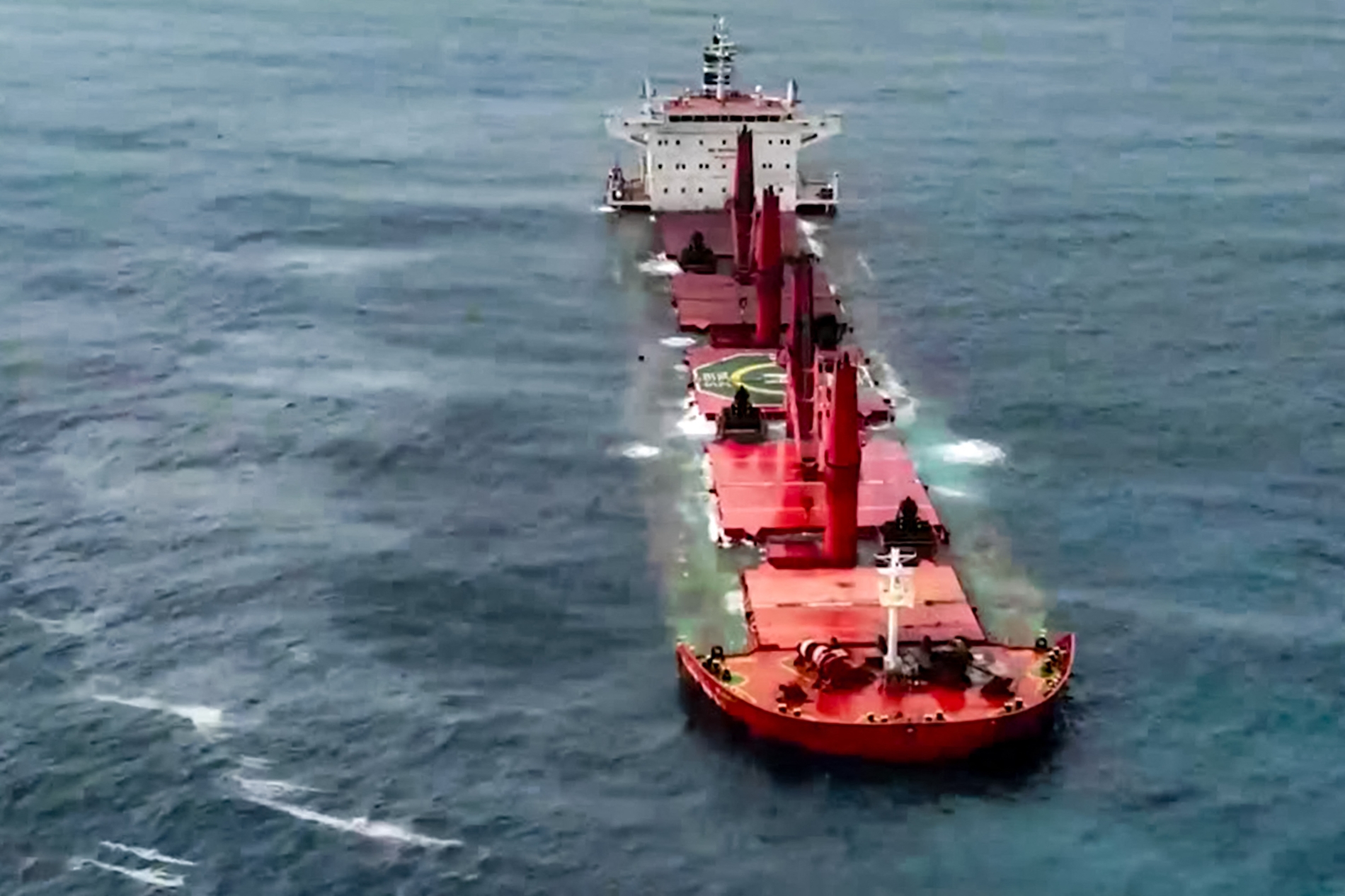The recent attacks on two ships that were then sunk by the Yemen-based Houthi movement in the Red Sea took much of the world by surprise. This is due in part to the impression given by US President Donald Trump and others was that the Houthis had taken a sizeable hit after weeks of American missile attacks, which began in earnest in March, with an Omani-facilitated ceasefire declared on 6 May. Trump said the Houthis had “capitulated” and “did not want to fight any more.”
On 6 July, the Liberian-flagged, Greek-owned bulk carrier ‘Magic Seas’ was fired at by Houthi teams using rocket-propelled grenades (RPGs), unmanned surface vehicles (USVs, a type of small boat without a crew), and ballistic and cruise missiles, approximately 94km from Yemen’s west coast as it travelled northbound towards the Red Sea. The ship’s crew were rescued by the United Arab Emirates. The Houthis later aired a video showing its fighters boarding the ship, placing explosives on it, and detonating them, causing the Chinese-built 35,800-tonne vessel to sink.
The following day, on 7 July, another Liberian-flagged, Greek owned bulk carrier named Eternity C was attacked in a similar position, around 91km from Yemen’s west coast, as it was headed northbound to the Red Sea and the Suez Canal. Again, the Houthis attacked with speedboats using RPGs and USVs. The USVs hit the Eternity C’s bridge, killing four crew members. The next day, another two USVs attacked the vessel, which later sank. Nine crew members were rescued, but several others were taken hostage by the Houthis, while others remain unaccounted for.
Onwards unperturbed
These incidents, along with previous assaults, show that the international community has not yet managed to dissuade the Houthis from attacking ships headed towards the Red Sea, which they have been doing since late 2023, in solidarity with the Palestinians of Gaza. The Houthis have said that when Israel withdraws from the Strip, it will halt its attacks on ships. Efforts by the US, UK, Israel and others to attack Houthi positions have failed to establish deterrence, meaning that one of the world’s most critical maritime routes is still being held hostage by the Houthis.













